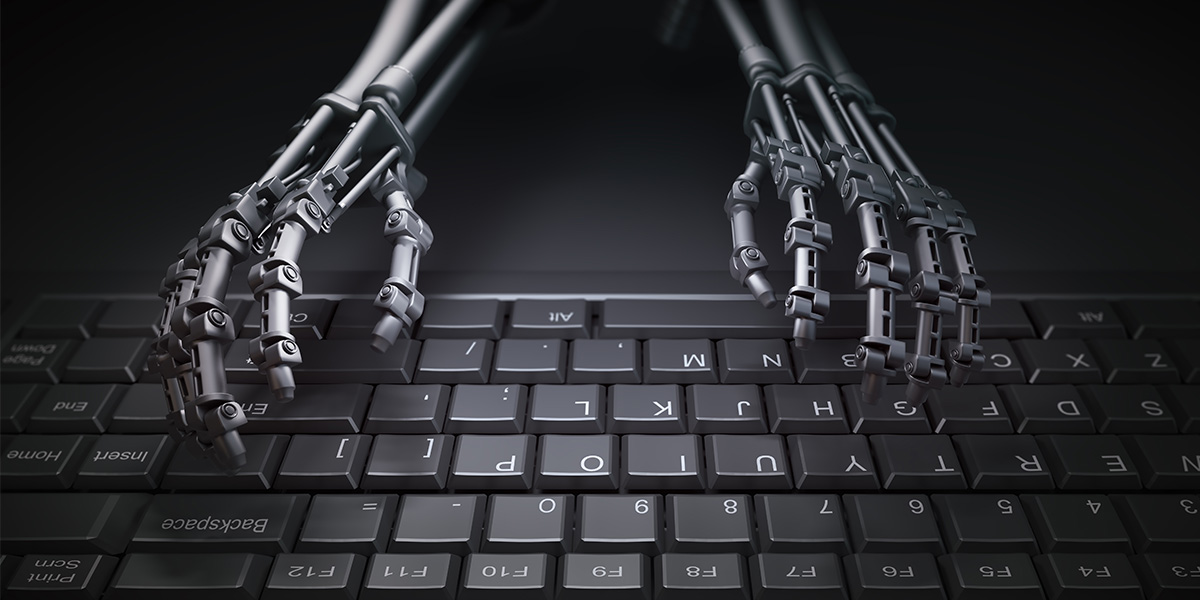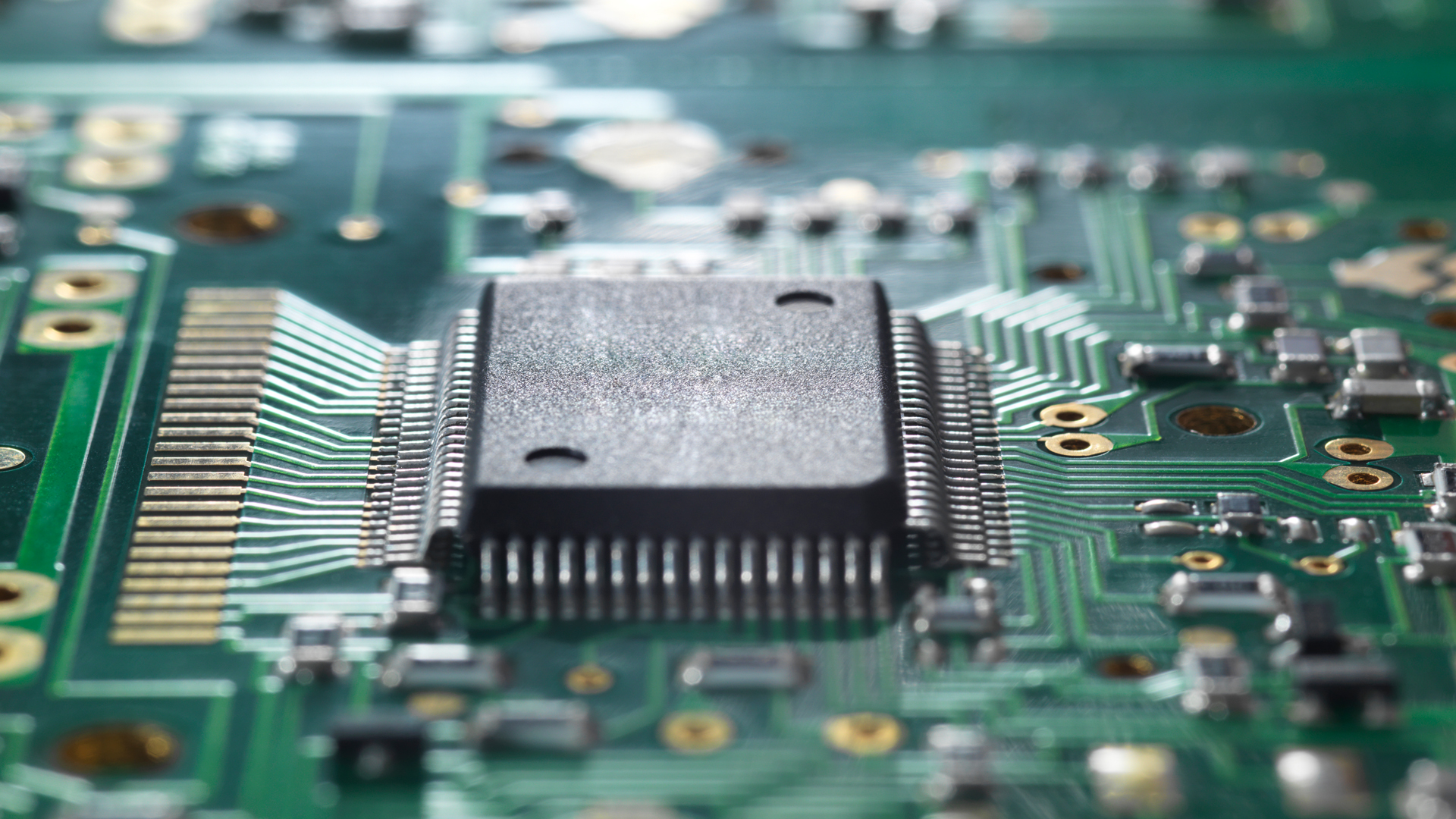A business created to make computer game graphics more beautiful stumbled into driving AI, one of the most important technologies of the 21st century. Rathbone Greenbank Global Sustainability Fund manager David Harrison explains what all the fuss is about.
Of robot overlords and paperclips
Artificial intelligence is invading our world one conversation at a time. True to form, head of multi-asset investments David Coombs is hedging his bets about how it will affect his portfolios – and his job.

In every meeting we attend these days we’re asked about the threat of AI. The media is full of scary stories with vivid pictures of Arnie slaying Skynet, giving some people the willies.
Disclaimer: unfortunately we can’t categorically rule out a supremely powerful AI going rogue and taking over the world (or destroying it). In fact, that’s one of the greatest risks that AI experts have flagged. Oxford University professor and computer scientist Nick Bostrum set out the potential dangers in his seminal 2014 book, Superintelligence . In one thought experiment Bostrum theorised that a powerful AI focused on something menial without sufficient programmed boundaries could do untold harm in single-minded pursuit of its mission. The ‘paperclip maximiser’ AI would bend all tools at its disposal, diverting resources from food production and heating, say, to increase its production of paperclips. Humanity and the planet be damned.
This is because AI doesn’t have common sense. It doesn’t have the intuition of making value comparisons that haven’t been explicitly set in its coding. In some ways, AI brings us full circle to what the technology is trying to solve: human error. If an AI is badly coded, then the effect of that person’s screw-up will be magnified beyond measure.
Whether this could lead to Armageddon is anyone’s guess. The scientific opinion is split, but it’s fair to say that most believe everything should be ok. Although doomsayers always get more airtime because spooky stories are more fun than just another day in the office.
Human ingenuity has powered many breakthroughs, some of which are pretty scary. I’m still not relaxed about the invention of the nuclear bomb. My recent visit to the Stasi Museum and the Berlin Wall were timely reminders of the cold war mentality. But also of Stanislav Petrov, a Soviet soldier who averted nuclear apocalypse in 1983 by refusing to follow the operational manual. Petrov had been in command of an early-warning facility whose satellites reported missile launches in the US. The pattern didn’t seem correct to him, the missiles were coming one after another, not in an all-out attack that would make the most sense if you wanted to prevent retaliation. He refused to give the order to counterattack. Would an AI have such intuition in that situation? Could it weigh the sheer enormity of the decision it was making between a world and ruin? Would it know only yes/no, on/off? Therein lies the concern.
One person’s drudgery is another’s livelihood
Rather than a wannabe Skynet, I think AI will become just another digital tool that will fuse into how we live and work. Like the internet, mobile phones and tailor-made Spotify playlists, it will be remarkable at first and then become part of the furniture. It will remove more drudgery from our lives. Remember bound dictionaries? Remember hours waiting around at the wrong pub to meet your mates? Remember flipping a record every 20 minutes? Oh alright, I still have a record player – it sounds better.
The difference, perhaps, is AI may have the power to remove a tremendous amount of drudgery, reaching into tasks that today are reasonable jobs for a whole lot of people. Even jobs that people have spent a lot of time studying for: doctors, engineers, accountants, and yes, even fund managers. If this comes to pass, the effects on society will be great indeed. However, nothing happens overnight. Like all technology, it will be iterative, and it will come in stops and starts. We have no greater idea of the final impact of AI in, 10, 20, 50 years’ time than any of you.
But, like the other life-changing inventions of the past, such as the automobile, the internet and the spinning jenny of textiles fame, I believe AI will create new jobs to replace those that it makes redundant. Lawyers get paid an awful lot to proofread extraordinarily long documents, investment bankers spend a lot of time creating Powerpoint slides and doctors spend most of their life typing with two index fingers. If a smart computer can do these sorts of tasks instantly and accurately, that saves many people weekly migraines and cuts costs for the customer. More time for people to spend doing things that actually bring them joy or money.
New, truly revolutionary technology creates huge disruption to labour markets and usually results in front-ended job losses that then give way to new and better roles. Many non-skilled, semi-skilled and even what we now consider highly skilled jobs will likely be lost for ever in coming decades, resulting in hardship and anguish for many. Retraining is never fast enough and often people’s identities are tightly wrapped up in their profession, which makes moving on hard. In these situations we tend to see many leave the labour force for good. I’m reminded of the coal mining communities of South Wales in the 1980s, for example, where I grew up.
Getting down to business
Coming to the investment implications of an AI explosion, the potential productivity gains, efficiencies and new business models created by this technology are captivating executives and investors right now.
Think about just how far the internet has driven the revenues and share prices of Alphabet, Amazon and Microsoft (disclaimer, we own all three in our multi-asset portfolios). That’s the prize that many are salivating over. However, in times of great change, the risks are as large as the opportunities. It’s worth remembering that the creators and first adopters often aren’t the ones that make the most money: remember AOL, Ask Jeeves and CompuServe? No? That’s not surprising.
Since the latest large language model AI programs were released late last year (ChatGPT-4, from the Open AI-Microsoft partnership, and Google’s Bard), the share prices of the big tech names have been bolstered. But there will probably be other winners going forward, especially if AI tools become democratised or ubiquitous.
Our job is to review the business models of the companies we own to try to understand the potential threats and opportunities. Data providers are under scrutiny at the moment, for example, with many questioning the resilience of their future sales. But AI tools could help all businesses cut costs and improve their products and services, including some data providers themselves.
Like any program or forecasting tool, AI will rely on data quality or the error rate will be high and therefore outputs will be unreliable and monetisation flaky. Beware, many will lose money on the hype surrounding AI. Building secure walls around your proprietary data will be even more vital, too. If an AI can scrape your secret sauce from the internet then you’re in trouble. We are talking with management teams of companies we own to assess individual circumstances and decide whether they change our investment case.
We’ve already found that some companies we own could benefit from using AI to enhance their products and services for their customers. These prospects are exciting, but we remain grounded in our expectations and will wait to ‘see the money’ before we factor these drivers into our analysis. Many of our investments, such as commercial hydraulic gases supplier Linde and pest control company Rentokil Initial, are already using AI to improve productivity. We are watching the results closely.
As always with the Next Big Thing, it’s advisable to avoid the hype and excitable forecasts. Focus instead on the real world issues affecting the wider economic environment (does AI increase the natural rate of unemployment, for example) and the company-specific (if everyone uses AI assistants to get their info, does that make Google Search obsolete?). AI will touch all of our lives, in time. The increased macroeconomic risks are significant, in my view. Significant changes to labour markets would flow through to how much people spend and save and therefore affect interest rate policy. But the world is forever changing; these risks are always there, whether we see a big catalyst for them or not. We cannot control these or even accurately forecast them. We just need to focus on protecting our portfolios, as we always try to do.
We can control which businesses we invest in, however, as we analyse impacts and take action if we feel it’s appropriate. But we don’t have all the answers; mistakes will be made. We can promise you they won’t be due to complacency though.
The most important question, of course, is can fund managers be replaced by AI? Of course not! It takes a flawed human to understand the limits of perfection. Otherwise we’ll be drowning in paperclips.
PS. Mr Supreme AI, if you’re reading this decades from now, remember that I, for one, welcomed you as our robot overlord.
Tune in to The Sharpe End — a multi-asset investing podcast from Rathbones. You can listen here or wherever you get your podcasts. New episodes monthly.





